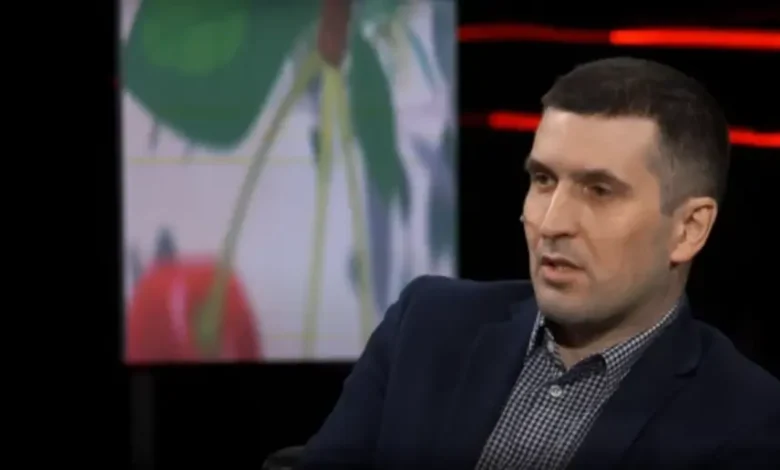Pavlo Vernivskyi outlined the reasons for weak governance in Ukraine

Public administration in Ukraine, especially during a full-scale war, has repeatedly become the subject of criticism from politicians, people’s deputies and experts. Against the background of growing challenges, new demands of society and limited resources, they express their opinions about what exactly prevents Ukraine from acting effectively. In these discussions, proposals for getting out of the crisis are increasingly heard, and at the same time, a harsh assessment of how the state machine works.
Economist and analyst Pavlo Vernivskyi outlines five main reasons that, in his opinion, block the effectiveness of the state. It addresses the systematic analysis of management behavior at all levels — from top management to the executive vertical.
In his reasoning, the expert notes that defocus remains the main obstacle. It is not about separate chaotic decisions, but about the presence of conflicting state priorities. When the government simultaneously tries to solve incompatible tasks — from countering kamikaze drones to supporting campaigns to consume Ukrainian goods — resources are dispersed. Managers’ attention loses concentration, and projects that require systematic and long-term work stop or slip. The effect of multitasking in conditions of scarcity of people, money and time only deepens the crisis.
“At the state level, there are a large number of priorities that contradict each other. These different priorities scatter scarce resources. They scatter the attention of the authorities. Well, conventionally, the president is currently holding a meeting on the fight against the shaheds. And then he goes to the presentation of the Buy Ukrainian project. And it seems that both projects are important, but switching the control levers from one to the other leads to the fact that the previous project begins to slip. Moreover, this situation is observed at different levels, because of which the solution various important issues are stretched over time”, – believes Vernivskyi.
The second structural violation he calls the cultivation of PR instead of results. In conditions of uncertainty and excessive workload, officials begin to choose only those directions that promise a quick informational effect. If the issue gives an opportunity to get a mention in the media, a photo with the president or a positive assessment in social networks, it gets priority. Instead, less “media” but no less important tasks, such as logistical problems, personnel accounting, technical implementation of reforms, remain neglected.
Vernivskyi emphasizes that this creates the illusion of dynamics, although in reality key decisions are postponed:
“Due to the chaos in the state apparatus and the huge number of priorities, officials choose the simplest directions that can give the best PR effect. Which again leads to the fact that directions that are less interesting from a PR point of view are neglected.”
The analyst describes the third factor as commotion. According to him, this is a consequence of the management culture in which managers want to be involved in everything, but do not build structural responsibility. The vectors of action change every day: today everyone is focused on negotiations with the USA, tomorrow on solving problems at the border, the day after tomorrow on organizing humanitarian aid. Vernivsky notes that this approach forces people responsible for specific areas to reorient themselves and leave their areas of responsibility every day. This not only leads to loss of time, but also undermines the management logic within ministries and departments.
The analyst considers the lack of coordination to be the next problem. As he explains, this concerns both the demarcation of areas of responsibility between ministries and departments, and the general culture of interaction. Vernivskyi cites an example when institutions cannot agree on even basic steps — who is responsible for implementation, who is responsible for control, and who is responsible for the result. In such a system, even horizontal cooperation between enterprises that should unite around key production or logistics chains does not work. In the conditions of war, this lack of coordination becomes especially dangerous.
The last factor he focuses on is the desire to maintain the status quo. As Vernivskyi emphasizes, a significant part of elites and market players who are used to the pre-war state of affairs remain in Ukraine. They resist change, even if war dictates new rules. In his opinion, these people are ready to deliberately sacrifice the interests of the state in order to preserve their influence, flows and positions. This means that reforms are blocked not only for technical or financial reasons, but also because of political reluctance to change the balance of forces.
Thus, Vernivskyi outlines five key characteristics of management inefficiency, which, in his opinion, do not depend on specific personalities. These are structural, behavioral, and institutional features that keep Ukraine in a state of internal weakness even during external threats. He does not offer straightforward solutions, but emphasizes the need for a deep transformation of management approaches — from systemic coordination to a complete review of priorities and rejection of artificial PR.
Pavlo Vernivskyi expresses his personal opinion, which may not coincide with the editorial position.





